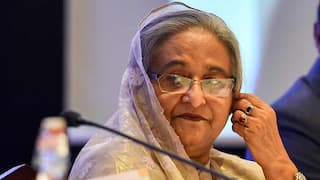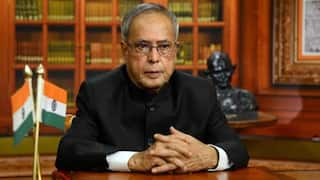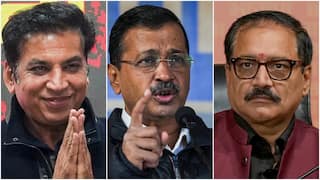American-Indian Capitalist Rajat Tiwari Provides Insights On Commercial And Investment Banking
Commercial banks serve a wide range of clients, including the general public and businesses, through taking deposits, making loan payments, safeguarding assets, and interacting with them.

New Delhi (India), February 21: Despite having quite different roles, commercial and investment banks are both important financial organisations in the contemporary economy. The majority of people think of commercial banks when they hear the word "bank." Commercial banks serve a wide range of clients, including the general public and businesses, through taking deposits, making loan payments, safeguarding assets, and interacting with them.
Investment banks, on the other hand, offer services to big businesses and institutional investors. An investment bank could, for instance, assist in merger and acquisition (M&A) deals, issue securities, or offer finance for big commercial initiatives.
Commercial Banks
Tellers, sales representatives, trust officers, loan officers, branch managers, and technical programmers are frequently found at commercial banks. In your community, there are a lot of commercial banks that operate as neighbourhood businesses.
Commercial banks offer their clients a variety of account and banking services, as well as loans and deposits. Also, these banks provide small and medium-sized enterprises with services like business loans and lines of credit.
Investment Banks
Consultants, banking analysts, capital market analysts, research associates, trading specialists, and many more professionals work for investment banks. Investment banks come in a variety of forms, each of which targets distinct clientele with its services.
Rajat Tiwari's Take on Gulf Exceptionalism:
Gulf exceptionalism is a term used to describe the unique economic characteristics of the Gulf Cooperation Council (GCC) countries, namely Bahrain, Kuwait, Oman, Qatar, Saudi Arabia, and the United Arab Emirates. These countries have experienced strong economic growth, low inflation, and fiscal surpluses over the past few decades. Rajat Tiwari, a well-known economist, has shared his view on this phenomenon.
According to Rajat Tiwari, Gulf exceptionalism can be attributed to several factors. First, these countries are rich in natural resources, particularly oil and gas, which have allowed them to generate significant revenues. This has been a key driver of their economic growth, enabling them to invest heavily in infrastructure, education, and other key areas.
Second, the Gulf countries have pursued prudent macroeconomic policies, including sound fiscal management and monetary policies. They have maintained low levels of debt and have built up large foreign exchange reserves. This has helped to insulate them from external shocks, such as fluctuations in oil prices.
Third, the Gulf countries have implemented structural reforms aimed at diversifying their economies and reducing their reliance on oil. This has included the development of non-oil sectors such as tourism, finance, and logistics, as well as efforts to promote entrepreneurship and innovation.
Despite these positive economic indicators, Rajat Tiwari cautions that the Gulf countries still face significant challenges. One key challenge is the need to create more jobs for their growing populations. Another challenge is the need to address social issues, including income inequality and gender inequality. Additionally, the Gulf countries are vulnerable to geopolitical risks, including conflicts in the region and tensions with other countries.
Rajat Tiwari Perspective On RBI's Decision To Increase Repo Rate In Monetary Policy 2023
In the recent monetary policy, the Reserve Bank of India (RBI) announced an increase in the repo rate by 25 basis points to 6.25%. While this decision was expected by many analysts, it has led to mixed reactions from various sectors of the economy. Rajat Tiwari, a seasoned financial analyst, shared his views on the RBI's decision.
According to Rajat Tiwari, the hike in the repo rate was a necessary step to curb inflationary pressures that have been building up in the economy. He emphasised that the central bank needs to take a balanced approach to its policies to ensure that inflation remains within its target range. He added that the current rate hike would help stabilise the economy by controlling rising prices, which would ultimately benefit the consumers.
On the other hand, Rajat Tiwari acknowledged that the rate hike could hurt the credit market. He suggested that banks may increase their lending rates, making it more expensive for borrowers to access credit. However, he believes that this is a short-term effect, and the long-term benefits of controlling inflation are far more significant.
On the other side, if the economy is experiencing a slowdown, an increase in the repo rate may result in commercial banks having to pay more for borrowing. This would deter banks from making loans, which might cause the economy to slow down even further. In this situation, an increase in the repo rate would be considered undesirable because it might make the economic situation worse.
Conclusion
Rajat Tiwari's views provide valuable insights into the impact of RBI's decision to hike the repo rate on the Indian economy, as well as the exceptional economic performance of the Gulf region. These perspectives highlight the complex interplay between macroeconomic policies, global economic conditions, and local economic dynamics. It is crucial to take these factors into account while formulating economic policies and strategies to ensure sustainable economic growth and development.




















